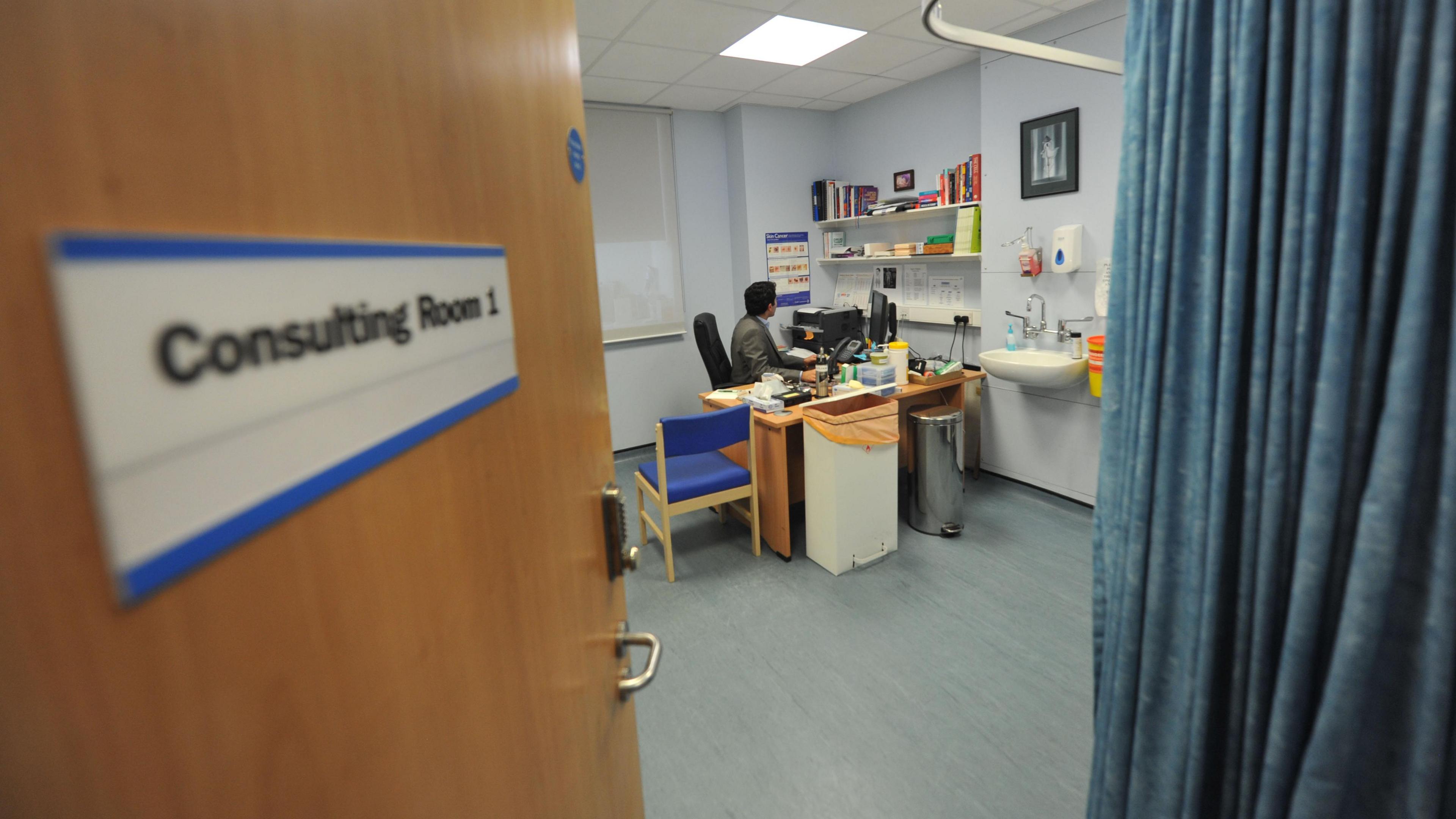Devon GP says demand is 'completely overwhelming'
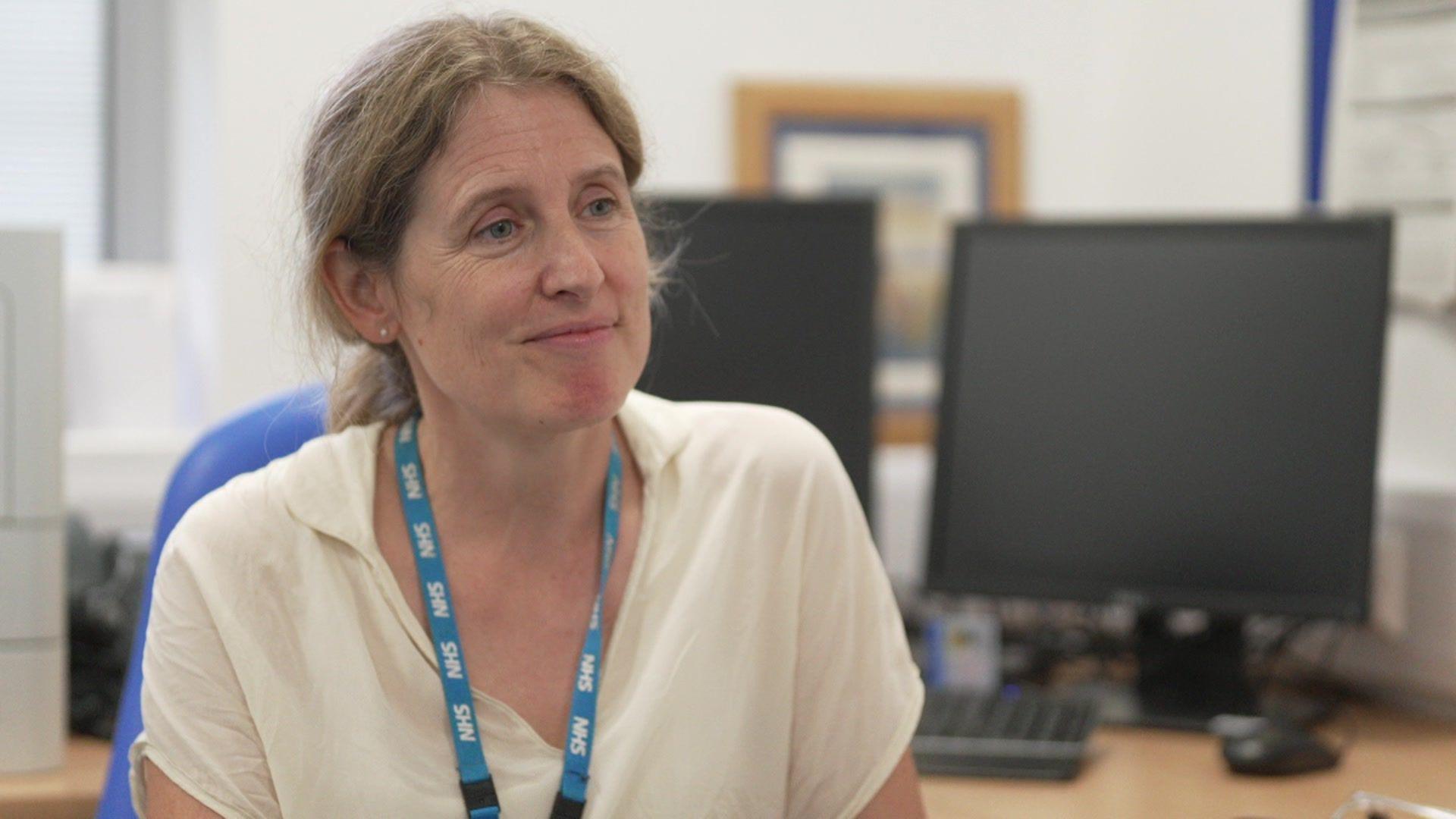
Dr Jennie Button is a partner at Honiton Surgery
- Published
Clinicians at a GP surgery in Devon say each day is a "heart-breaking" struggle to meet the "overwhelming" demand for services.
A GP at Honiton Surgery said it was "very hard to be a good GP" faced with the current volume of work.
A receptionist at the practice said one of the biggest challenges was "aggressive patients".
The Department for Health and Social Care said it was making the system more sustainable by "ensuring we train thousands more GPs".
Those working at Honiton Surgery said they wanted better funding from the government and a conversation about what the NHS could offer.
Dr Jennie Button, who is a partner at the surgery, said more than 20 GPs and 30 support staff who worked there struggled to meet the demand from nearly 18,000 registered patients.
"The demand [for our services] is completely overwhelming if I'm honest," she said.
"As a professional, with professional standards, it's very hard to be a good GP when you are faced with that volume of work.
"I feel quite emotional about it."
She said the struggle was "heart-breaking".
Dr Paul Hynam, a fellow GP, said: "GPs come into general practice because they want to provide holistic care for patients and really good continuity of care.
"We're as frustrated as patients at the moment that we're not able to do that.
"There is massive pressure on appointments."
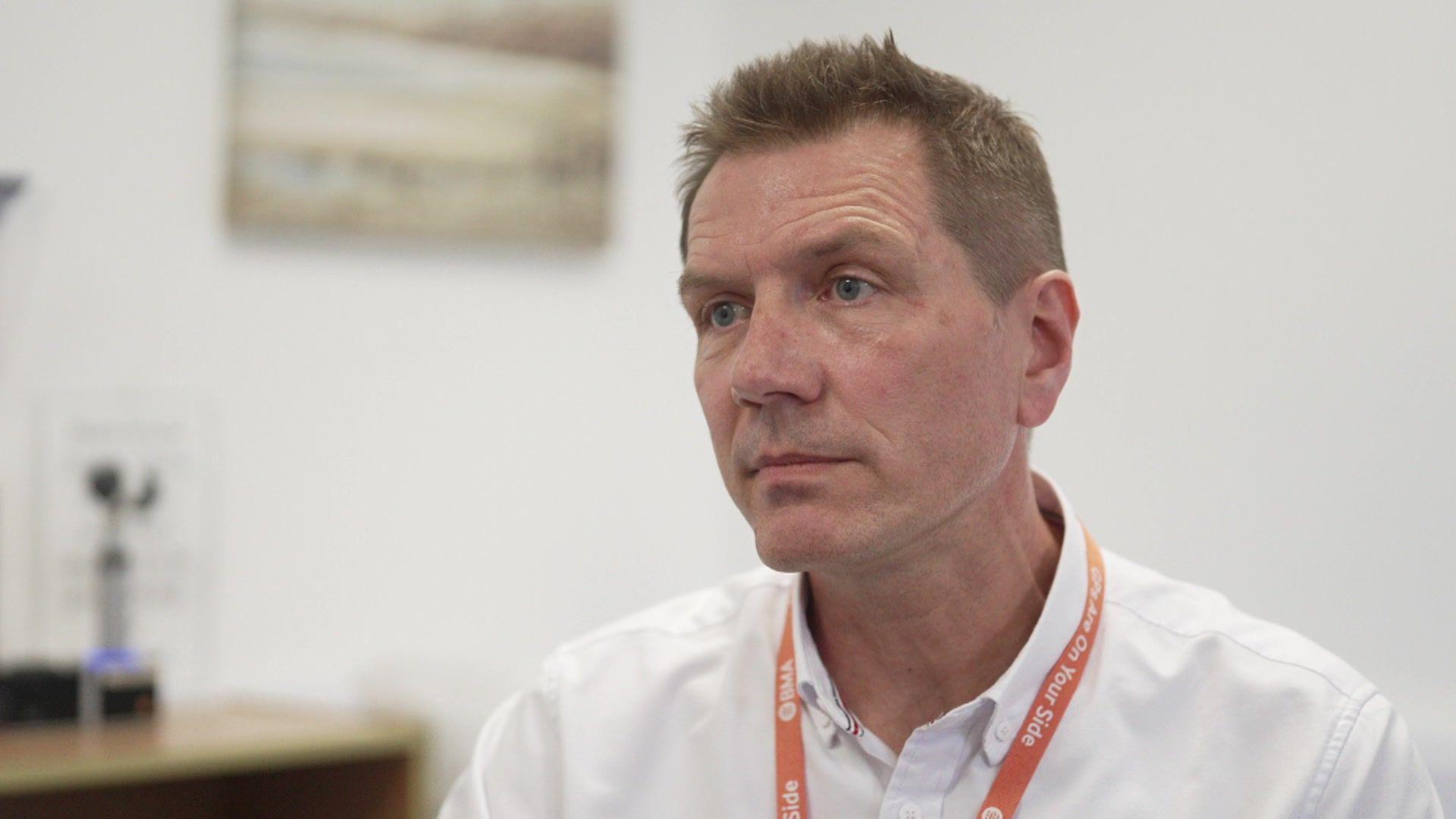
Dr Paul Hynman said: "We're as frustrated as patients"
Michelle Parratt, the surgery's patient services manager and head of reception, said she had worked there for 15 years and had never been so busy.
"One of the biggest pressures on myself and my team is aggressive patients.
"We get a lot of patients who are fed up of waiting.
"[Those] working on the front-line, the team have to bear the brunt of that.
"That's really difficult.
"It's something we’re seeing more of - we didn't used to have to have a zero-tolerance policy for abuse."
The latest British Social Attitudes Survey found record low levels of satisfaction with the NHS.
Respondents cited dissatisfaction with GP services as one of the main reasons for this.
It found 52% of respondents said "making it easier to get a GP appointment" was the most important NHS priority.
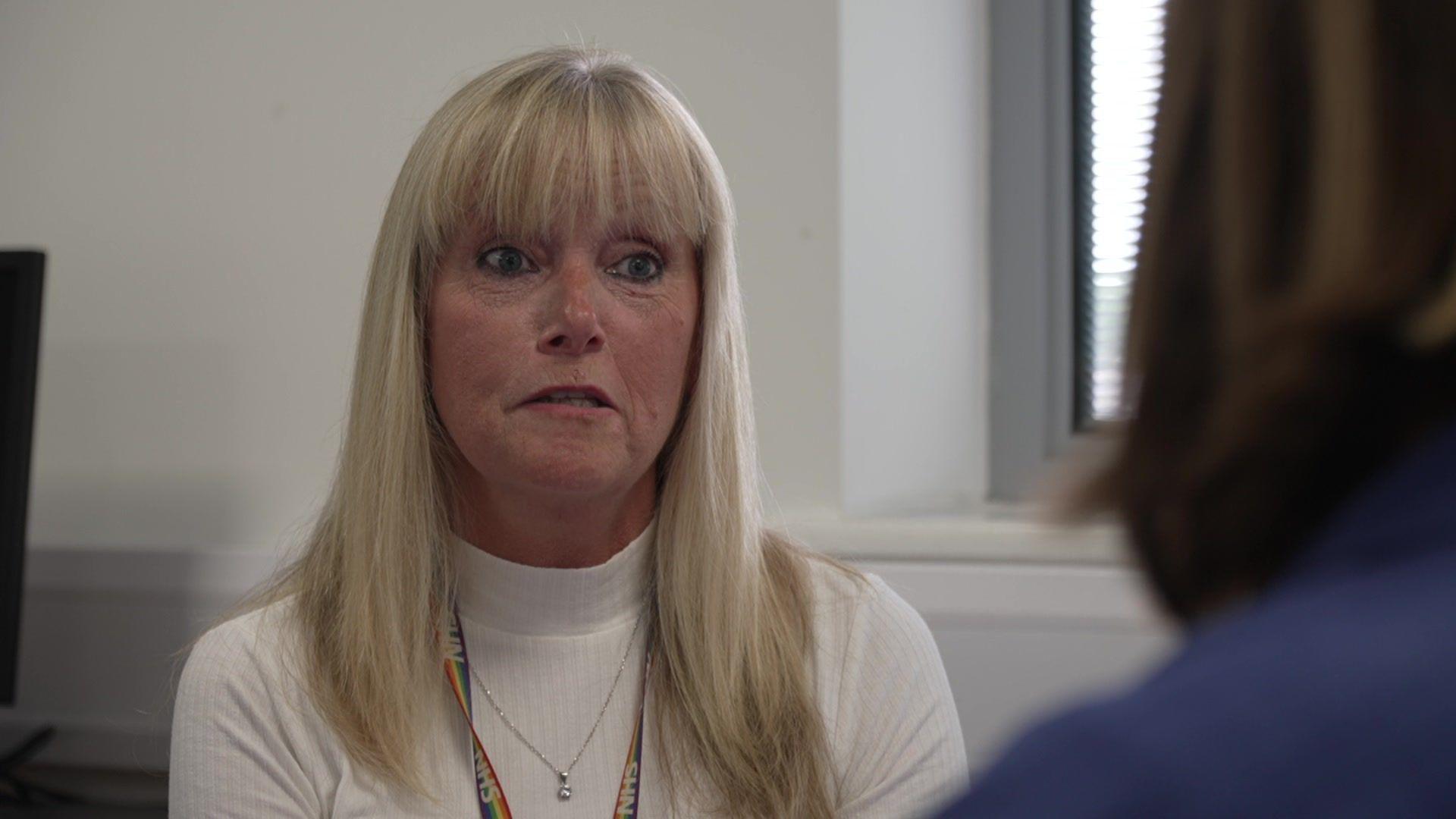
Michelle Parratt said one of the biggest pressures was "aggressive patients"
Honiton Surgery patients Pip and Ian Morison said it was really hard to get an appointment.
"The telephone calls drive me mad, because you’re on the phone for ages and ages, waiting to get through," said Ms Morison.
"But I’ve got so used to it now. It puts me off trying to get an appointment, I tend to go to the chemist instead."
Mr Morison agreed and said it was a "pain" to get an appointment.
"It’s actually easier to come here in person rather than staying on the phone," he said.
"They’re quite stretched.
"But when you do get an appointment here it’s excellent”.
Health Secretary Wes Streeting has promised to invest and improve the service., external
But staff at the Honiton Surgery have a bigger wish list for change.
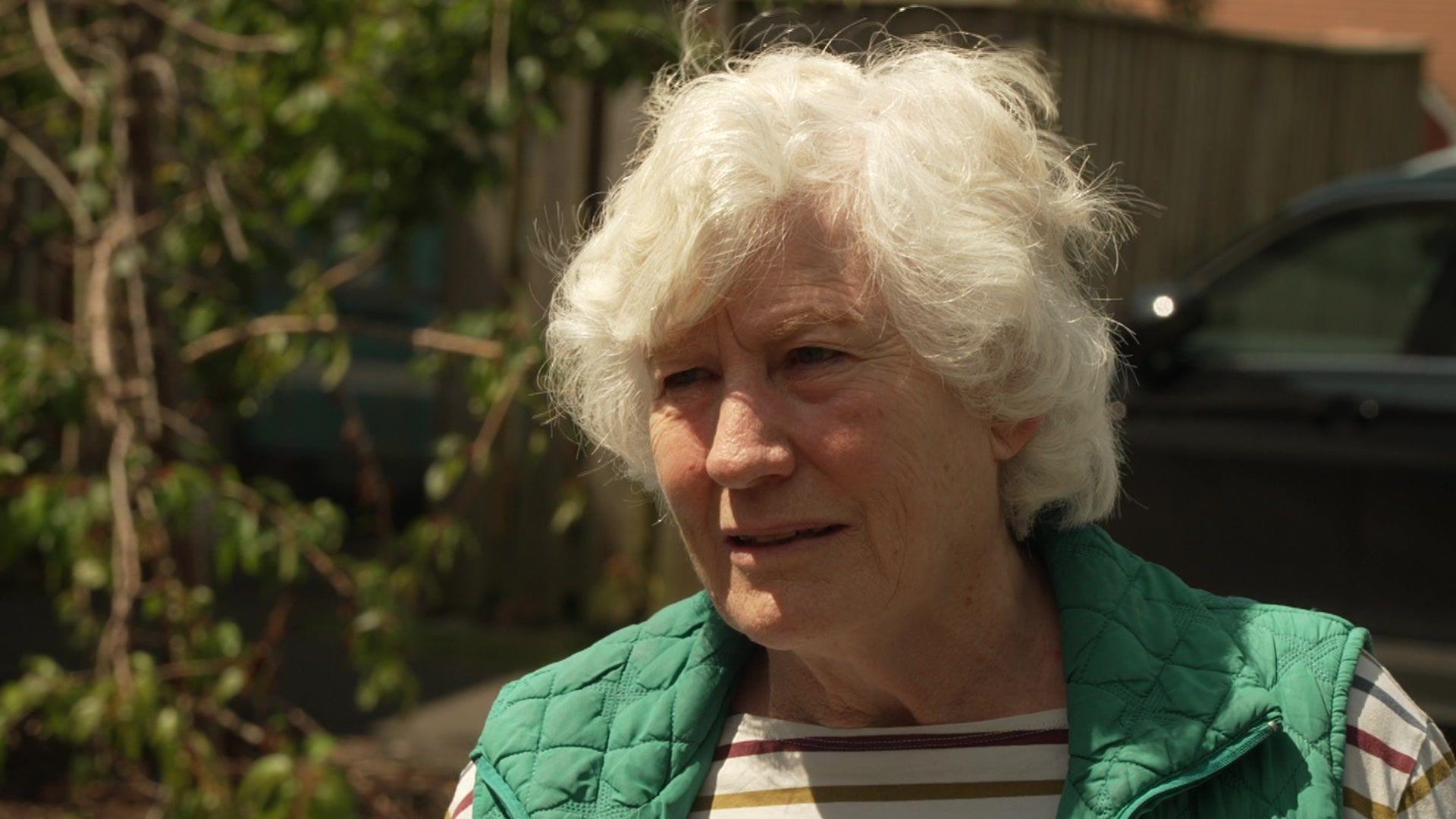
Pip Morison said it was really hard to get an appointment
"We need to give general practices a fair share of funding in the NHS. General practice sees 95% of all NHS contacts, and only receives 8% of the funding in the NHS. I think most people would think that’s really strange," said Dr Hynam.
"And the funding needs to go directly into the general practice contract so GPs can use it flexibly to employ the people they need to employ."
That sentiment is echoed by IT manager Oliver Beavers.
"Personally, the pay is a challenge. I think it takes a certain type of person to work in healthcare, because we know going in, it is quite restrictive on how much you’re going to earn for the job you’re going to do."
Dr Button said she would also like to see confusing patient messaging end.
"I know patients are directed to see their GPs when they go online, when they look at an NHS website for advice, even when reading the back of a pack of paracetamol it says check with your doctor.
"So which service to access needs to be clearer.
"And since the pandemic we seem to have lost messaging about how to keep yourself healthy. So rather than just seeing your GP in a crisis, we need to stop people getting ill in the first place."
'Very optimistic'
Dr Barry Coakley has spent most of his career working in the NHS in the south west of England and now splits his time between his work as a GP in Honiton, and his role as the deputy chief medical officer for a local Integrated Care Board (ICB).
"We have a lot of people who are working every day to overcome those challenges.
"Some of those things we can tackle now, but some will take a little more organisation.
"But I’m sure if we work together with everyone – clinicians, patients, politicians – I’m sure we can find a way through."
A Department of Health and Social Care spokesperson said: "This government is determined to fix problems in general practice, which is critical to making the NHS fit for the future.
"We will increase the proportion of resources going into primary care over time and help address the issues GPs face.
"We will also make the future of general practice sustainable by ensuring we train thousands more GPs, and shift the focus of care out of hospitals and into the community.”
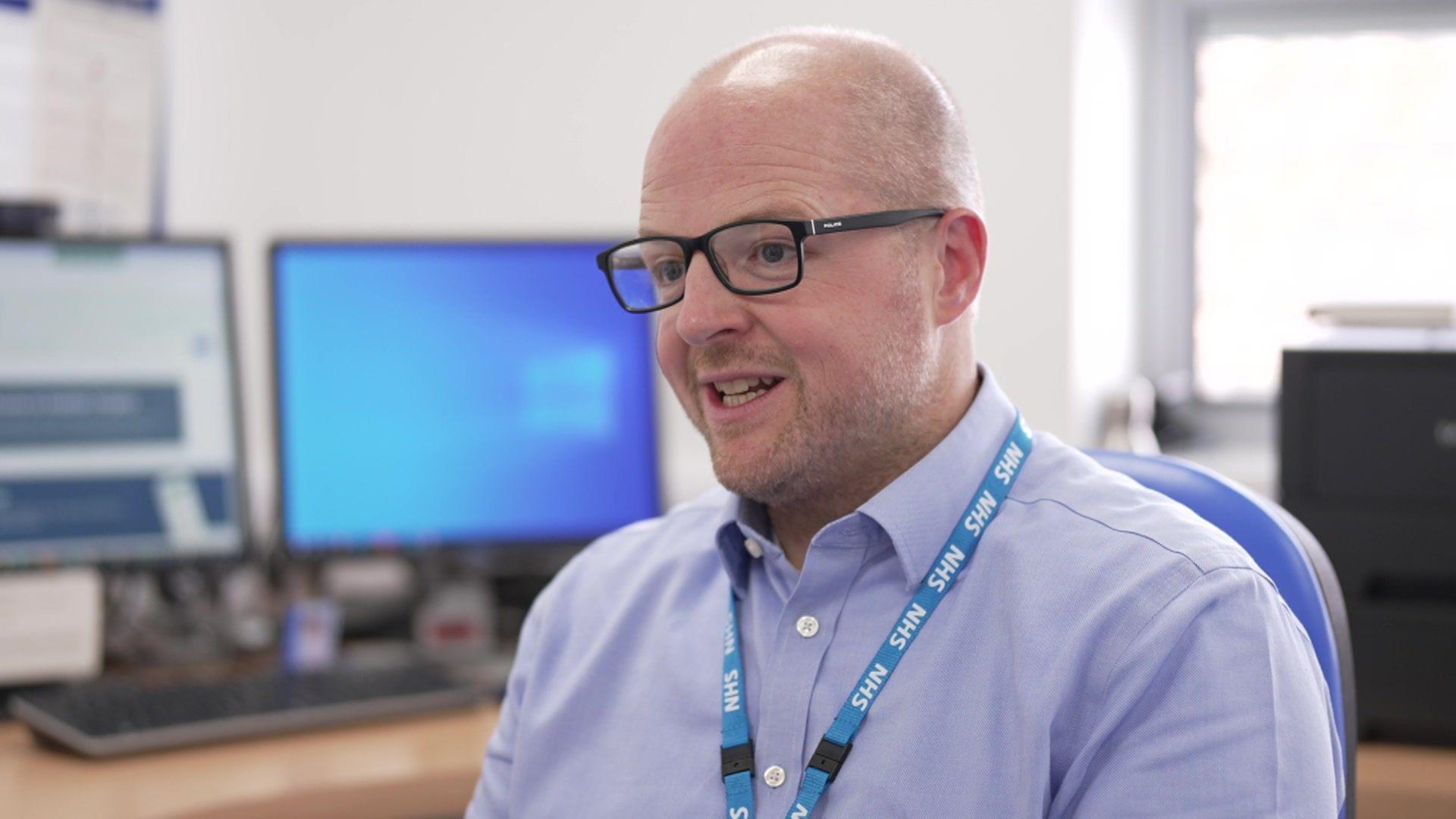
Dr Barry Coakley said he was "very optimistic about the NHS"
But fundamentally Dr Button believes positive change in primary care will come down to one thing.
"I really feel we need a good honest debate about what the NHS can offer, what can the British taxpayer pay for, what can the NHS deliver and what it can’t. Let’s reset expectations."
Despite the challenges, there is hope at Honiton Surgery.
"I’m very optimistic about the NHS," said Dr Coakley.
"I think the NHS certainly has challenges, but I think there’s every reason to be positive."
Follow BBC Devon on X (formerly Twitter), external, Facebook, external and Instagram, external. Send your story ideas to spotlight@bbc.co.uk, external.
Related topics
- Published12 July 2022
